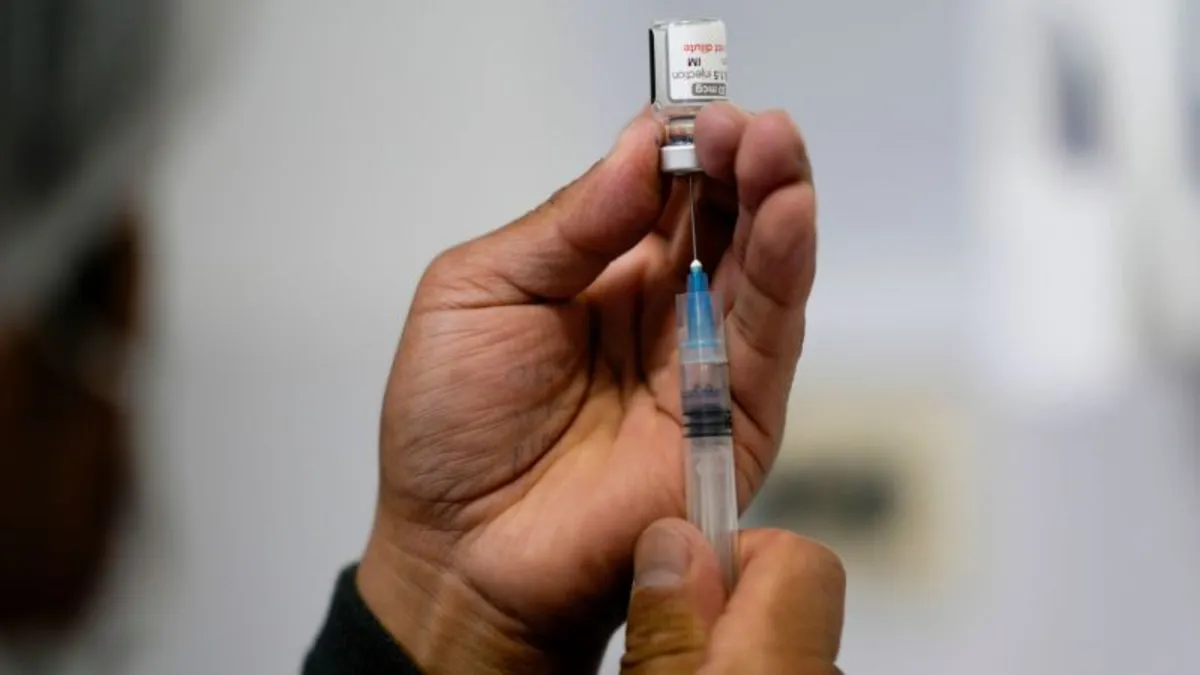
The most widely used COVID-19 vaccines, particularly those developed by Pfizer and Moderna, may offer unexpected advantages for certain cancer patients. Recent research indicates that these vaccines could enhance the immune systems of individuals battling advanced lung or skin cancer, thereby improving their ability to fight tumors. This groundbreaking study, published in the journal Nature, reveals that patients receiving specific immunotherapy drugs lived significantly longer when they also received a Pfizer or Moderna vaccine within 100 days of initiating treatment.
The researchers from MD Anderson Cancer Center in Houston and the University of Florida concluded that the benefits observed were not related to COVID-19 infections. Instead, the key factor appears to be the messenger RNA (mRNA) technology that powers these vaccines. Dr. Adam Grippin, the lead researcher, stated, "The vaccine acts like a siren to activate immune cells throughout the body. We’re sensitizing immune-resistant tumors to immune therapy."
Despite skepticism from figures such as Health Secretary Robert F. Kennedy Jr., who has cut $500 million in funding for some applications of mRNA technology, the research team found their results compelling enough to pursue further investigation. They are preparing a more rigorous study to determine if pairing mRNA coronavirus vaccines with cancer drugs known as checkpoint inhibitors could be beneficial. This study will serve as an interim step while they design new mRNA vaccines specifically for cancer treatment.
A robust immune system typically eliminates cancer cells before they can pose a significant threat. However, some tumors develop mechanisms to evade detection by the immune system. Checkpoint inhibitors are designed to remove this protective barrier, enhancing the effectiveness of immune responses against cancer. Yet, some patients' immune cells may still fail to recognize the tumor. This is where mRNA technology could play a crucial role.
Messenger RNA, or mRNA, is a natural component found in all cells, carrying genetic instructions that guide the body in producing proteins. While mRNA is most commonly associated with the groundbreaking COVID-19 vaccines, researchers have long sought to develop personalized mRNA "treatment vaccines" that train immune cells to identify unique characteristics of a patient's tumor. The new findings provide a promising indication that an off-the-shelf approach using existing vaccines could be effective, according to Dr. Jeff Coller, an mRNA expert at Johns Hopkins University, who was not involved in the study. "What it shows is that mRNA medicines are continuing to surprise us in how beneficial they can be to human health," he remarked.
During the study, Grippin and his colleagues were initially focused on developing personalized mRNA cancer vaccines. However, they observed that even a generic mRNA vaccine could stimulate immune activity against cancer. Curious about the potential impact of the widely available mRNA COVID-19 vaccines, the research team analyzed the records of nearly 1,000 advanced cancer patients receiving checkpoint inhibitor treatment at MD Anderson. They compared outcomes between those who had received a Pfizer or Moderna vaccine and those who had not.
The results were promising; vaccinated lung cancer patients were nearly twice as likely to be alive three years after beginning their cancer treatment compared to unvaccinated patients. Among melanoma patients, the median survival rate was significantly higher for those who received the vaccines, although precise figures remain unclear as some individuals in this group were still alive during the analysis.
This research underscores the potential of mRNA vaccines not only as a defense against COVID-19 but also as a transformative tool in the fight against cancer. As investigations continue to unfold, the integration of mRNA technology into cancer treatment pathways may pave the way for more effective therapies and improved patient outcomes.